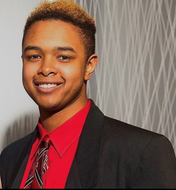 I was born in Wilmington, Delaware, with a deep connection to my community. I experienced the importance that community can have in the development of youth early in life; my mother is a teacher who works with primarily Black and brown elementary children, and my father – a veteran turned chef – would often volunteer as a coach for youth sports, acting as a father-figure for many of the boys in the community. After graduating high school in Delaware, I attended Northwestern University and graduated with a degree in Social Policy in 2018 with a concentration in health policy. I remember the first time I heard the title “community organizer.” I thought of it as a nebulous term – one without true definition. I envisioned someone chosen by the people, mobilized in times of crisis, whose clear-headed passion could rally even the most inactive community. I recognized community organizers as individuals with a vision, whose voice and commitment to their cause could move mountains and shake the foundations of systems that have been engrained in the American psyche for generations.
My view of community organizing has largely stayed the same. Community organizers bring people together – both in times of rest and in unsettled times – for a common goal. But being an organizer is about so much more; it’s about amplifying the voices of those who have been silenced by generations of systemic subjugation. It’s impossible to discuss social and economic equity without examining housing security. You can’t address LGBTQ+ rights without evaluating how up to 40% of homeless youth are queer, and without working to provide them with safe, inclusive housing options; you can’t support those with mental illnesses without addressing the lack of supportive housing supply and funding; those with legal troubles are often denied housing despite housing being pivotal to the employment application process. These are just a few of so many examples. Housing security and equity are pivotal to social work and advocacy, and I have made it my mission to ensure that those who are often left out from these conversations have their voices heard the loudest. I’m excited to continue my work for the Evanston community and Cook County as a whole. If you are interested in getting to know me more, or to chat about how you can be a part of ending homelessness and housing inequity, feel free to reach out to me at [email protected].
1 Comment
Ann M Weatherhead
11/30/2021 08:53:15 am
Rodney,
Reply
Leave a Reply. |
|
© COPYRIGHT 2018. ALL RIGHTS RESERVED.
|




